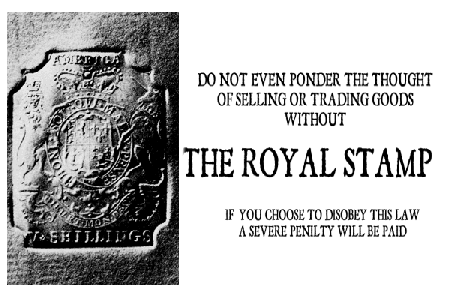Boycott of British Goods
The boycott of British goods were a series of boycotts for British acts in American colonies which led to the American revolution. The reason why Britain imposed taxation on the colonies was because of the losses faced in the French-Indian war. The British had to collect money because they had borrowed money from others and needed to pay it back. Many acts were passed in 1764 which angered colonist and started to grow hate towards their mother country who was limiting them. The Stamp Act was essential to the Boycott of British goods because it was the first direct taxation on the colonies; also the act was valid throughout all the English colonies. This act was the final straw to the colonists because the act taxed all the printed materials essential for information and entertainment. In May of 1765 Virginians were the first to protest the taxation imposed by Britain by exclaiming "only Virginia. Can tax Virginian citizens in the "Virginia Resolutions.
In July of 1765, The Sons of Liberty, an organized group of colonists rebelling against the Stamp Act, instilled terror to the British stamp agents causing them to resign their job occupation. In October of 1965 The Stamp Act Congress (Primary Source) gathers 9 representatives of the colonies in New York to write a document stating their reason for the repealing of The Stamp Act. In 1766 George III signs a bill repealing the act after much controversy with Benjamin Franklin assured an american revolt.
With the repeal of The Stamp Act the colonist felt they had autonomy. The colonist became free-spirited and did not want their mother country to dominate all of their decisions. Therefore, leading to revolts other than British Goods and led to a greater revolution. It can be said the boycotts led to unreversible tension in which resulted in the American Revolution.

In July of 1765, The Sons of Liberty, an organized group of colonists rebelling against the Stamp Act, instilled terror to the British stamp agents causing them to resign their job occupation. In October of 1965 The Stamp Act Congress (Primary Source) gathers 9 representatives of the colonies in New York to write a document stating their reason for the repealing of The Stamp Act. In 1766 George III signs a bill repealing the act after much controversy with Benjamin Franklin assured an american revolt.
With the repeal of The Stamp Act the colonist felt they had autonomy. The colonist became free-spirited and did not want their mother country to dominate all of their decisions. Therefore, leading to revolts other than British Goods and led to a greater revolution. It can be said the boycotts led to unreversible tension in which resulted in the American Revolution.

Primary Source- Stamp Act
Primary Source 1- From a Farmer in Pennsylvania to the Inhabitants of the British Colonies
Primary Source 2- Declarations of the Stamp Act Congress
http://www.historyplace.com/unitedstates/revolution/rev-prel.htm
http://www.boston-tea-party.org/timeline.html
Like the Boycott of British goods, Pontiacs Rebellion was an event that also led to the American Revolution!!
ReplyDeleteI've noticed a pattern. The French and Indian War led to tension between Britain and it's North American Colonies. The tension resulted in Acts, Rebellions, etc. which lead up to the American Revolution.
ReplyDeleteWOW
Deletenobody knew that!!!
y
Deletewhy would you say y
DeleteI knew that...
Deletewho else is here looking for homework answers...no? Just me ?
DeleteMe
DeleteI elive the main reason there was so many rebellions is because Britain attempted to impose laws in a territory where they Didn't have any physical presence.
ReplyDeleteI agree
DeleteNo, the physical presence of British troops is what drew the ire of the Patriots.
DeleteThe american colonist were being taxed for print
ReplyDeleteThe only reason why the British were taxing others was because they were in debt and were trying to get out of it.
ReplyDeleteThe taxes were not so much in order to pay for the French and Indian War debts, but rather to pay for the protection of the colonists on the frontier from the Native Americans. As someone else pointed out, Pontiac's Rebellion is a good example of this.
DeleteSo when we study the Revolution, we can consider this the underlying cause.
ReplyDeletethe taxes were only beneficial to the british to get them out of trouble
ReplyDeleteThe boycotting of British goods did not change the laws or acts imposed on the colonies. It diminished some of the enforcement of the acts but it only led to a British military force to arrive in Boston.
ReplyDeleteNo taxation without representation!
ReplyDeleteThis is the famous rebellion that well protest that made up the phrase so well known, "No taxation without representation" in which the Americans were trying to send a message to the Parliament that they were taxing wrongfully.
ReplyDeleteThis comment has been removed by the author.
DeleteThis is good for children that are doing research on this.
ReplyDeleteOnly they put periods in the wrong places sometimes.
ReplyDeleteI for got my book so I use this website.
ReplyDeletesorry my friend did that hes gay
ReplyDeletewhat were the years in which these series of events occured
ReplyDeleteplease answer in this format:
(year-year)
no
ReplyDeletethis is great information for kids who are studying about the American Revolution
ReplyDelete